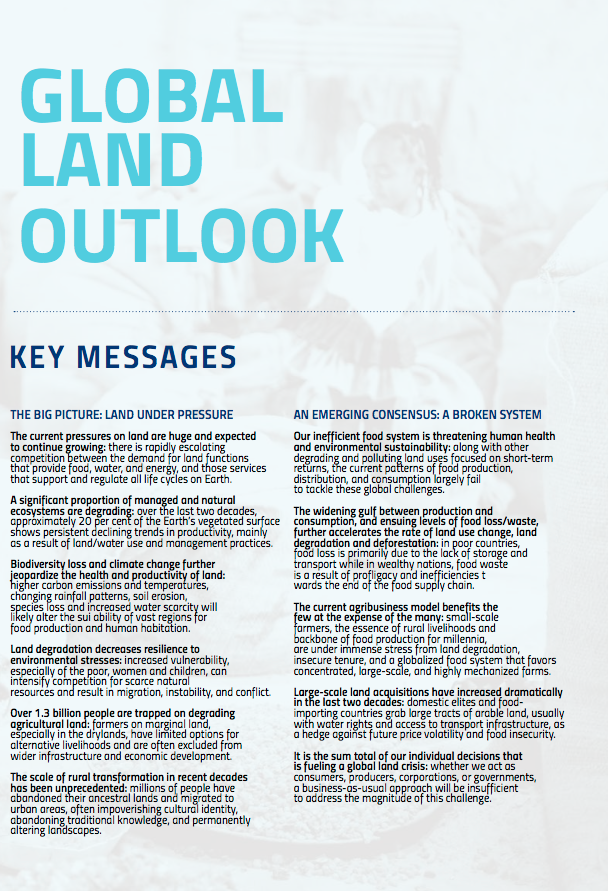Global Land Outlook
The current pressures on land are huge and expected to continue growing: there is rapidly escalating competition between the demand for land functions that provide food, water, and energy, and those services that support and regulate all life cycles on Earth.






